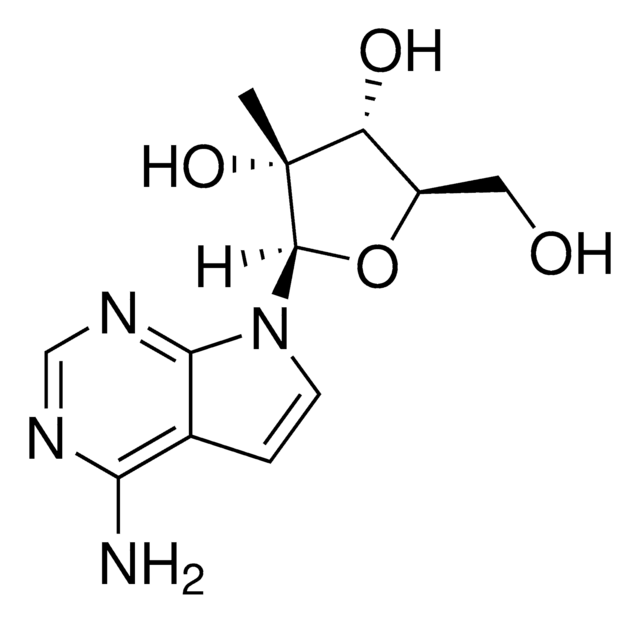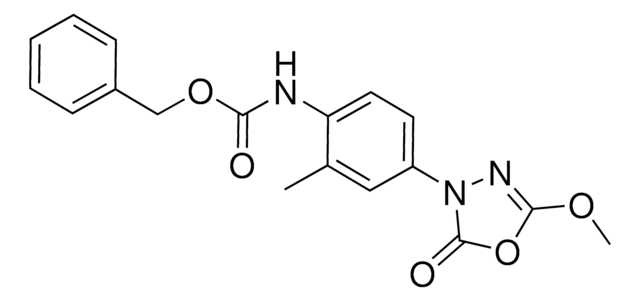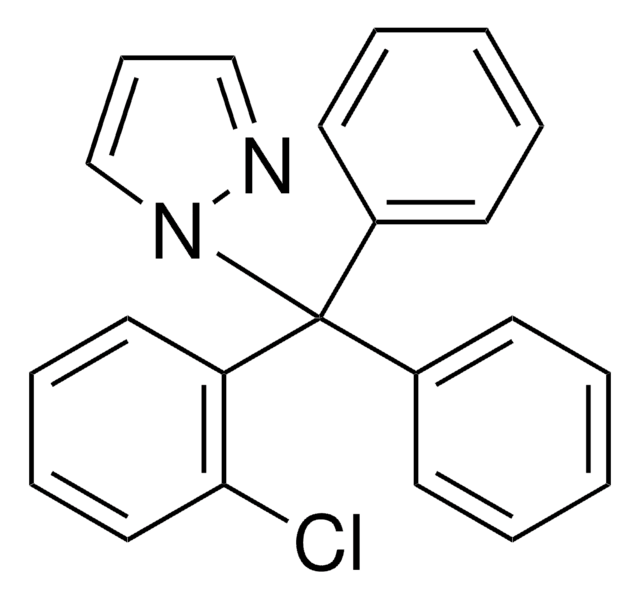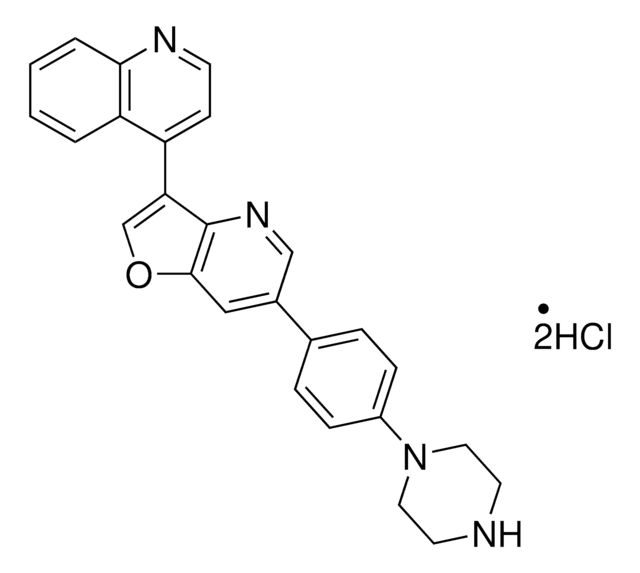SML2206
SKA-121
≥98% (HPLC)
Synonym(s):
5-Methylnaphth[2,1-d]oxazol-2-amine, 5-Methylnaphtho[2,1-d]oxazol-2-amine, SKA 121, SKA121
Sign Into View Organizational & Contract Pricing
All Photos(1)
About This Item
Empirical Formula (Hill Notation):
C12H10N2O
CAS Number:
Molecular Weight:
198.22
UNSPSC Code:
12352200
NACRES:
NA.77
Recommended Products
Assay
≥98% (HPLC)
form
powder
color
brown to dark gray
solubility
DMSO: 2 mg/mL, clear
storage temp.
2-8°C
SMILES string
CC(C1=C2C=CC=C1)=CC3=C2OC(N)=N3
Biochem/physiol Actions
SKA-121 is a KCa3.1 (IKCa1, IK1, KCa4, SKCa4, SK4) subtype-selective small conductance Ca2+-activated K+ channel (SK channel) positive-gating modulator (EC50 = 109 nM/KCa3.1 vs. 8.7 μM/KCa2.1, 6.8 μM/KCa2.2, 4.4 μM/KCa2.3) with 200- to 400-fold selectivity over CaV1.2 as well as representative KVs (KV1.3, KV2.1, KV3.1, and KV11.1) and NaV (NaV1.2, NaV1.4, NaV1.5, and NaV1.7) channels. When applied in vivo, SKA-121 significantly lowers mean arterial blood pressure in wild-type, but not KCa3.1(-/-), normotensive and hypertensive mice (100 mg/kg i.p.). SKA-121 is a more potent and selective KCa3.1 activator than SKA-31 (EC50 = 260 nM/KCa3.1, 2.9 μM/KCa2.1, 1.9 μM/KCa2.2, 2.9 μM/KCa2.3).
Storage Class Code
11 - Combustible Solids
WGK
WGK 3
Flash Point(F)
Not applicable
Flash Point(C)
Not applicable
Certificates of Analysis (COA)
Search for Certificates of Analysis (COA) by entering the products Lot/Batch Number. Lot and Batch Numbers can be found on a product’s label following the words ‘Lot’ or ‘Batch’.
Already Own This Product?
Find documentation for the products that you have recently purchased in the Document Library.
Aida Oliván-Viguera et al.
Frontiers in physiology, 8, 39-39 (2017-02-16)
The calcium/calmodulin-gated KCa3.1 channel regulates normal and abnormal mitogenesis by controlling K
Palle Christophersen et al.
Channels (Austin, Tex.), 9(6), 336-343 (2015-07-29)
This short review discusses pharmacological modulation of the opening/closing properties (gating) of small- and intermediate-conductance Ca(2+)-activated K(+) channels (KCa2 and KCa3.1) with special focus on mechanisms-of-action, selectivity, binding sites, and therapeutic potentials. Despite KCa channel gating-modulation being a relatively novel
Aida Oliván-Viguera et al.
Basic & clinical pharmacology & toxicology, 119(2), 184-192 (2016-01-29)
Opening of intermediate-conductance calcium-activated potassium channels (KC a 3.1) produces membrane hyperpolarization in the vascular endothelium. Here, we studied the ability of two new KC a 3.1-selective positive-gating modulators, SKA-111 and SKA-121, to (1) evoke porcine endothelial cell KC a
Brandon M Brown et al.
Molecular pharmacology, 92(4), 469-480 (2017-08-02)
Intermediate-conductance (K
Nichole Coleman et al.
Molecular pharmacology, 86(3), 342-357 (2014-06-25)
Small-conductance (KCa2) and intermediate-conductance (KCa3.1) calcium-activated K(+) channels are voltage-independent and share a common calcium/calmodulin-mediated gating mechanism. Existing positive gating modulators like EBIO, NS309, or SKA-31 activate both KCa2 and KCa3.1 channels with similar potency or, as in the case
Our team of scientists has experience in all areas of research including Life Science, Material Science, Chemical Synthesis, Chromatography, Analytical and many others.
Contact Technical Service







